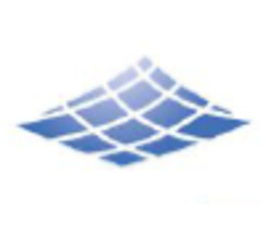Grant Proposal Writing - How to design and communicate your project convincingly
Grant Proposals Writing
- Beginn: 02.12.2019
- Ende: 03.12.2019
- Vortragende(r): Dr. Sabine Preusse
- RaumZeit e.K. Coaching Beratung Training
- Ort: Möggingen/Radolfzell
- Raum: MaxLounge
- Gastgeber: IMPRS for Organismal Biology
- Kontakt: imprs@uni-konstanz.de

Writing of Grant Proposals and Research Statements - 2 Workshops in a Row
The first workshop will be “Grant Proposal Writing – How to design and communicate your project convincingly”, the second workshop will be “Writing of Research Statements”. For PhD students and postdocs participating in both workshops, the research statement will be introduced as the little brother of the grant proposal. They will be able to use their results from the first two workshop days and integrate them into a research statement in a writing workshop. Participants taking part in the second workshop only, will be briefly introduced into the major elements of the research agenda, so that they will be able to formulate their research vision. The development of a research plan, which might also be part of an application, will be covered in the Grant Proposal Writing workshop only. It is not part of the Writing of Research Statements Workshop.
Focus of the Grant Proposal Writing Workshop
The explicit focus of the Grant Proposal Writing workshop is to provide an overview on funding opportunities for the different stages of a career as a researcher and to show how to design research projects to the needs of this different types of projects. This does not include funding of additional parts of the PhD.
Workshop Contents
The workshop covers the complete proposal process as given in Table 1. Topics and exercises are detailed and chosen with respect to the duration of the workshop and the participants’ preferences.
- Identification of the right funding scheme
• Overview on funding programmes, contact points and other sources of detailed information - Assessment of the framework defined by the funding scheme
• Meticulous textual work on funding programme documents
• Knowledge on political and societal background of funding programmes and schemes - Mapping the research idea to the framework to achieve a high relevance
• Understanding the objectives, the evaluation criteria and the informal, non-written aspects of the evaluation process
• Increasing congruency of the project with the funding scheme and the evaluators’ view by enriching or focussing the research idea or by variation of the project context - Setting up a concept for the project
• Planning objectives, approach and activities of the project
• Grasping risks and challenges internal and external to the project and defining contingency plans - Identification of necessary expertise and resources
• Translating objectives into a workflow of generating knowledge
• Finding the right stakeholders, project partners, team members
• Estimating resources and planning a budget - Structuring the proposal
• Once more meticulous textual work on funding programme documents - Visualisation
• Supporting the one-way communication with the evaluator by a coordinated interplay of figures, structure and text - Formulation of the different parts of the proposal with regard to the framework and the evaluation criteria
• Explaining the complex and detailed research ideas to the evaluator
• Communicating the progress beyond the state-of-the-art
• Restricting the information to what is required
• Answering to the political or societal aspects of the funding scheme to pin down the benefit and impact of the project
• Focusing the self-portrayal - Coordination of the proposal writing and submission process
• Detailed knowledge on all documents which are part of the proposal
• Coordination of getting necessary documents and contributions from stakeholders or project partners in time
Training Method
The trainer will provide expert input with respect to the different topics. However, the focus lies on the actual work of the students on their own research idea. The building blocks for these proposals are prepared in the context of a funding scheme of their choice. Thus, several funding schemes will be covered and the differences will then be worked out in the plenum. Examples will be discussed in the group.
The course language will be English or German.
Preparation of the Training
Participants are asked to bring a new idea for a stand-alone research project.
The trainer will provide a questionnaire in advance of the training to assess the individual interests with respect to funding programmes, the experience of the participants in proposal writing, and special wishes concerning the relevance of the different topics. This will be used to focus the training and the exercises to the needs and wishes of the participants.
Documentation
Each participant will receive a detailed training manual in English covering all topics of the training. Furthermore, the trainer will document the workshop in a photo protocol which will be sent to the participants within three weeks after the workshop.
Target Group & Language
This workshop is dedicated to PhD students and Postdocs with an idea for a stand-alone research project. It is necessary that they bring their own idea, which has not been developed into a project yet so that participants can fully participate in the exercises. It is possible however to work on their complete PhD project if a detailed planning does not exist so far. Funding of additional parts of the PhD is not in the focus of the workshop. The course language will be English or German.
Duration and Group Size
This is a 2-day training for a group of max. 12 participants.
Results to take home
At the end of the workshop, the participants will have the following results:
• An overview on funding possibilities and helpful sources of information;
• A list of contact points, websites and phone numbers, which provide support and detailed answers to questions;
• A set of tools for efficiently developing research ideas into research projects and designing them to a funding program of interest.
• Commented examples on proposal building blocks;
• Concise building blocks for different parts of a proposal as text, schemes, sketches, figures etc;